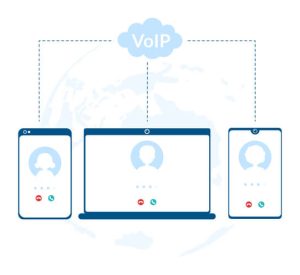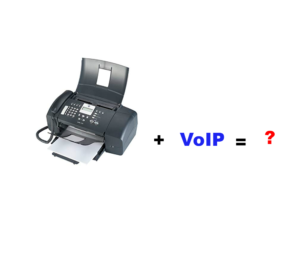Are you worried about making the move to VoIP? If so, you’ll be able to feel a lot more confident about switching to VoIP after reading our post below.
We’ve found some of the most common misconceptions and fears that businesses have when integrating business VoIP services. By the end, you’ll come to realize that many of these misconceptions are either misinformed or completely false altogether.
VoIP Systems Aren’t Reliable
One of the biggest misconceptions that people have surrounding VoIP is that the services are unreliable. However, in reality, they’re just as reliable as traditional phone lines.
The difference is that VoIP systems rely on the internet. Therefore, the reliability of your VoIP services will depend on the strength of your network connection. If you have fast internet speed, your VoIP system will remain reliable.
Although, if your network is weak, your VoIP systems won’t be able to function as well as they could.
VoIP Service Cost More
Since VoIP is still a relatively new concept that includes more advanced technology, many businesses believe that it will be more costly. Integrating a VoIP system into your business can actually be less expensive compared to traditional phone systems.
VoIP providers offer you a wide selection of features that can enhance your communications for improved productivity and, ultimately, a better bottom line.
Furthermore, there are often no upfront costs and you’re able to pay for the services on a month-to-month basis.
New Technology Is Difficult to Use
New technology is something that can be daunting for businesses that have been operating with traditional phone systems for decades. With words like SIP and PBX it can bring about a bunch of confusions and seem overwhelming. Although, you may be able to keep the current equipment that you already have and be able to use it with VoIP services.
In other cases, you may need to replace or remove the traditional methods that you used to use for communications.
The installation process for most VoIP services is now a lot simpler. A lot of the time, there’s no physical hardware or phone lines to be set up. Sometimes, VoIP providers may provide you with specific equipment that works best with their services.
In other cases, the entire installation process can be completed over the cloud.
VoIP Phone Line Quality Is Poor
If you have a good internet connection and a decent capacity, you’ll be able to carry out your calls with clarity. A general recommendation for clear phone lines is to have a bandwidth that’s at least 2 MB for uploading and downloading.
The time where VoIP phone quality may diminish is if your broadband connection is being used for other things, such as managing data traffic.
It’s common for smaller businesses to think that they need less bandwidth than needed. Therefore, it can be a good idea to consider how many things your broadband connection is being used for and ensure that there’s plenty left for your VoIP calls to be clear. It could be a good idea to set up a separate broadband specifically for your VoIP calls.
VoIP Isn’t Secure
The security of VoIP is an understandable concern that businesses have. This is due to the increase in cyber attacks. Although, VoIP services will only ever be as secure as the rest of your network.
So, keeping your VoIP systems secures works in the same way as you keep your internet and PC’s safe from cloud-based attacks. Businesses that deploy anti-virus protection are able to keep their network more secure. The more secure your entire network is, the more secure your VoIP services can be.
Implementing firewalls for your network can also be handy as it lets you keep track of the traffic that’s going out and coming in through your internet connection. This can help you monitor any strange activity to deploy steps to prevent hackers from being able to infiltrate your VoIP system.
You Can’t Scale VoIP
This is one of the more outrageous misconceptions surrounding VoIP. these services have been specifically made to provide businesses with more flexibility to be able to scale their communications with ease.
VoIP providers enable businesses of all sizes to pick the package that suits their needs best. They can then decide to either scale it down or up at a later date.
You can make changes to your VoIP system easily. For example, if your business is expanding, adding new locations using the same services is usually hassle-free. You can also add new features and users to scale business communications. All of these things can be achieved without having to endure downtime.
VoIP Can’t Be Used for Faxing
Despite the fact that fax is considered to be an older form of communication, there are still plenty of businesses that use fax on a regular basis. One of the misconceptions that businesses have is that they can’t continue using fax with VoIP services.
Fax machines that you already have can be used along with newly integrated VoIP systems via adapters and fax features that are virtual. Many companies find that sending and receiving faxes through VoIP, by using their phones or computers, is quicker and more reliable.
VoIP Doesn’t Let You Keep Existing Numbers
Being able to keep your existing numbers when switching to VoIP services is crucial. It saves you having to update everything from your internet pages and marketing material every time you switch between providers.
Moving from traditional phone systems to VoIP services lets you keep your current numbers. This is achieved by having your numbers ported to the VoIP service. This includes toll-free and mobile numbers too.
Conclusion
Hopefully, we’ve put your mind at ease about making the switch from traditional phone lines to VoIP services. There are common misconceptions that can make it seem a lot more daunting than it really is.

![What is PBX? [Private Branch Exchange]](https://www.youreviewit.com/wp-content/uploads/2022/05/Cloud-PBX-Diagram-300x275.png)




